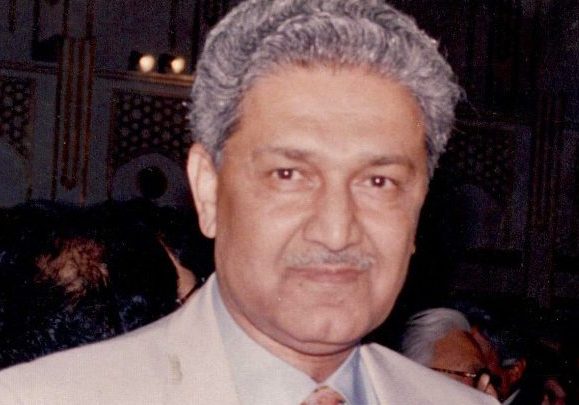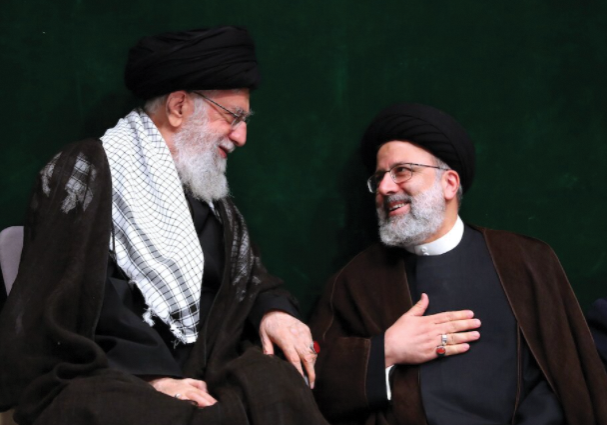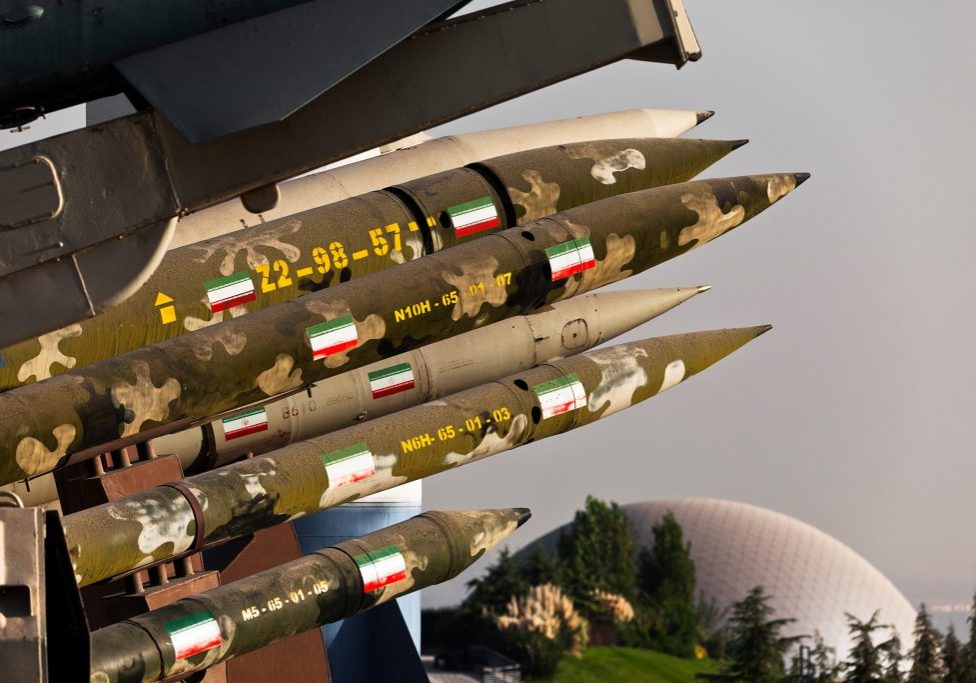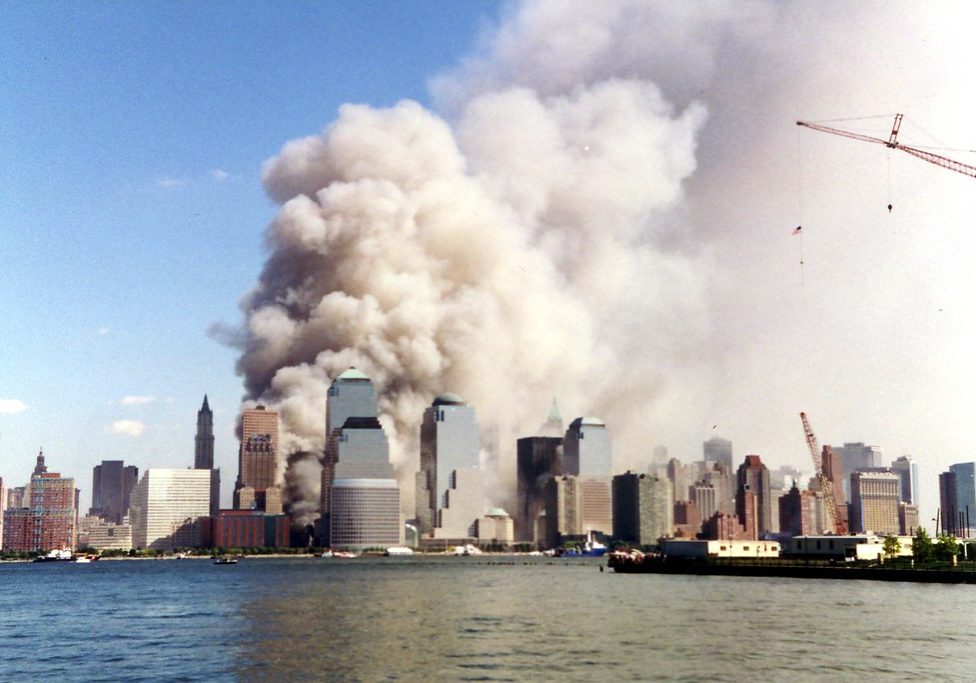Australia/Israel Review
A Tale of Two Agencies
Dec 1, 2005 | External author
The UN’s Palestinian refugee problem
By Arlene Kushner
In the aftermath of World War II, when it became apparent that millions of destitute refugees were not going to be attended to by existing organisations, the United Nations saw fit to establish an agency – the United Nations High Commission for Refugees (UNHCR) – to coordinate assistance to them. The UNHCR worked in accordance with the binding parameters and regulations of the Convention Relating to the Status of Refugees, adopted in Geneva in 1951. Today, the UNHCR’s makeshift blue tents have become immediately recognisable symbols of humanitarian assistance to millions of displaced people around the world. To date, the UNHCR has helped over 25 million people successfully restart their lives.
There is one group of refugees, however, for whom no durable solution has been found in the more than 50 years since their problems began: Palestinian Arabs who fled Israel in the period 1948-1949 as a result of its War of Independence. Originally numbering between 500,000 and 750,000 persons, there are today more than four million refugees, the majority of whom live in or near one of 59 camps in five areas, making for one of the world’s largest and most enduring refugee problems. There is no practicable solution to their situation in sight.
The plight of the Palestinian refugees is, at first glance, fairly surprising. Whereas the rest of the world’s refugees are the concern of the UNHCR, the Palestinians are the sole group of refugees with a UN agency dedicated exclusively to their care: The United Nations Relief and Works Agency (UNRWA), which operates independently of the Convention on refugees. The differences between the two agencies are striking: In addition to classifying Palestinian refugees by a distinct set of criteria, UNRWA, through an international aid package of several hundred millions of dollars a year, serves as the main provider of healthcare, education, relief, and social services for its client population – the sort of assistance UNHCR usually devolves to refugees’ countries of asylum. Moreover, while the UNHCR actively seeks durable solutions to refugee problems, UNRWA has declined to entertain any permanent solution for the Palestinian refugees, insisting instead on a politically unfeasible “return” to pre-1967 Israel.
By operating outside the norms accepted by the international community, UNRWA has succeeded in perpetuating a growing refugee problem. By establishing its own definition of a “Palestinian refugee” and actively encouraging resettlement in Israel, UNRWA not only has failed to resolve the Palestinian refugee issue, but has also lost sight of its original humanitarian goals, subordinating them instead to the political aims of the Arab world. Moreover, by hiring from within its own client population, UNRWA has at best created a “don’t ask, don’t tell” policy with regard to terrorist activity in its midst, and at worst has become so enmeshed in the terrorist population as to be effectively held hostage by it.
UNRWA, the first UN agency charged with the task of aiding refugees, was established by General Assembly Resolution 302 on December 8, 1949. The agency was tasked with directing relief and works programs for the Palestinian Arab refugees of Israel’s War of Independence, who had fled into the neighbouring Arab regions of Gaza (then under Egyptian control), Judea and Samaria (then controlled by Jordan), Jordan proper, Lebanon, and Syria.
From the outset, UNRWA was granted an extraordinary degree of autonomy, largely due to pressure from the UN’s Arab bloc. Unlike most other UN agencies, for instance, the appointment of UNRWA’s commissioner general does not require any approval or confirmation from the General Assembly, but is rather left to the discretion of the UN Secretary General, in consultation with UNRWA’s ten-member Advisory Committee. In addition, UNRWA’s Advisory Committee wields no executive or operative authority. Bound by no existing statute or international compact, it was free to set its own definitions and guidelines – definitions which differ markedly from those used by UNHCR. Thus, it described “Palestinian refugees” as
persons whose normal place of residence was Palestine between June 1946 and May 1948, who lost both their homes and means of livelihood as a result of the 1948 Arab-Israeli conflict.
The use of this definition is remarkable in itself, not least because its very short residency requirement – just two years – allows the inclusion of a great number of people who had recently arrived in Palestine, and were thus newcomers to the region; indeed, many of the people who fled Israel at that time had only just arrived from neighbouring Arab countries in search of work.
Contrast this with the definition provided by the UNHCR, established just two years later and charged with functioning within the parameters of the UN’s Convention Relating to the Status of Refugees. The UNHCR was bound by the Convention, the universal standard for refugee status and the only definition recognised by international law. In this version, a refugee is someone who
…is outside his/her country of nationality or habitual residence; has well-founded fear of persecution because of his/her race, religion, nationality, membership in a particular social group or political opinion; and is unable or unwilling to avail himself/herself of the protection of that country, or to return there, for fear of persecution.
By emphasising “country of nationality or habitual residence,” the UNHCR clearly intends to exclude the kind of transients – for example, a new arrival to the area in question for the purpose of employment – embraced by UNRWA’s definition.
This is not the only way in which the two definitions differ. The UNRWA definition also encompasses many other persons who would otherwise be excluded by the UNHCR. The latter, for example, outlines in detail the conditions under which the status of “refugee” no longer applies, stating that formal refugee status shall cease to apply to any person who has
voluntarily re-availed himself of the protection of the country of his nationality; or having lost his nationality, he has voluntarily re-acquired it; or, he has acquired a new nationality, and enjoys the protection of the country of his new nationality; or he can no longer, because the circumstances in connection with which he has been recognised as a refugee have ceased to exist, continue to refuse to avail himself of the protection of the country of his nationality.
By excluding people who have found legal protection from established states, or who have refused to do so when offered, UNHCR has sought to prevent expansion of the definition in ways that would encourage the improper use of UNHCR’s services for political ends. UNRWA, however, has done just the opposite: Not only has it declined to remove the status of refugee from those persons who no longer fit the original description, such as the hundreds of thousands of Palestinians who have been granted full citizenship by Jordan, but it confers indefinitely the status of refugee upon a Palestinian refugee’s descendants, now entering the fourth generation.
When UNRWA was first conceived, it did not explicitly include the descendants of Palestinian refugees; however, as its refugee population entered the second generation, UNRWA relaxed the definition of the term “Palestinian refugee” altogether, explaining that “for the purposes of repatriation or compensation the term Palestinian refugee‚ is used with a different, much less restrictive meaning as compared to UNRWA’s need-based definition.”
Certainly, despite these distinctions in their respective definitions of a refugee, a strong case could have been made for enfolding UNRWA into UNHCR once the latter agency had been established. However, Arab states insisted that Palestinian refugees receiving assistance from UNRWA be excluded from UNHCR’s mandate. As the UNHCR’s website explains, Arab states “feared that the non-political character of the work envisaged for the nascent UNHCR was not compatible with the highly politicised nature of the Palestinian question.” Since the Arab states would have had to consent to be signatories for the Convention to have achieved any effectiveness with regard to the Palestinian Arab refugees, the matter of an organisational merger never progressed very far.
Whether UNRWA’s autonomy has been beneficial to the Palestinian refugees, however, is a separate question. As the UN acknowledged in its decision to undertake responsibility for the protection and assistance of refugees worldwide, the situation of the refugee involves profound suffering. Without a country to call their own, refugees are denied the basic social, economic, and political rights that most civilians take for granted, and without which a citizen’s ability to lead a productive and fulfilling life is nearly impossible. For this reason, the UN has always sought to end a person’s status as refugee as quickly as possible.
UNRWA’s handling of the Palestinian refugee issue, by contrast, has done just the opposite. For implicit in UNRWA’s decision to expand its already problematic definition of a Palestinian refugee to include a mounting number of descendants is the guarantee that the problem remains an ongoing, ever-growing, and thus ever-worsening one. For some Arab leaders, this may be precisely the idea: So long as the Palestinian refugee problem remains visible and acute, Israel remains a convenient scapegoat on which the region’s political, social, and economic ills may be blamed. Yet for the Palestinian Arabs who have remained refugees for decades, and for their children, brought into the circle of dependence, the fact of UNRWA’s granting special refugee status has for the most part made their situation only worse.
If the difference in the two agencies’ respective definitions of refugees seems indicative of different goals – one humanitarian and the other essentially political – their records over the last half century affirm this in a glaring fashion. Since the UNHCR’s establishment, it has always worked toward the achievement of two fundamental aims: The protection of refugees, which includes ensuring respect for a refugee’s basic human rights and disallowing the involuntary return of a refugee to a country where he fears persecution; and the resolution of refugee crises. Precluding the existence of prolonged refugee situations – for the sake of both the refugees themselves and their countries of asylum – has always been of supreme value to the UNHCR.
So, too, did the General Assembly resolution establishing UNRWA intend its mandate to be temporary: It sought “the alleviation of the conditions of starvation and distress among the Palestinian refugees” with “a view to the termination of international assistance for relief” at an early date. The provision of direct relief was originally set to end no later than December 1950; yet its mandate has been renewed by the General Assembly every few years, and its current term now runs through June 2008. This begs the question: If UNRWA was set up as a temporary agency, why is it still operating more than half a century later?
One reason, again, lies in its singular definition of a refugee: By conferring the status of refugee on descendants, UNRWA has ensured an ever-growing population in need of its services. Yet a more significant reason has to do with its policy toward the Israeli-Palestinian conflict: UNRWA refuses to consider any resolution to the Palestinian refugee issue other than that demanded by the Arab world – the “right of return” to Israel. As explained on its website, UNRWA claims its services to be necessary until repatriation, “as envisaged in UN General Assembly Resolution 194 (III) of December 1948,” is enacted. While the legitimacy and applicability of Resolution 194, which states that refugees wishing to return to their original countries of residence under certain conditions should be permitted to do so, can be, and is, debated ad infinitum, the fact remains that by staunchly adhering to this resolution, and actively encouraging its beneficiaries to do the same, UNRWA is denying the Palestinian refugees the one thing that the UNHCR takes as its essential purpose for existence: An end to their unwanted status.
Now, it should be noted that by considering a permanent solution the ultimate goal of its agency, the UNHCR is not insensitive to refugees’ preferences. Certainly, the UNHCR recognises that most refugees forced into exile would prefer to return to their countries of origin. The UNHCR thus encourages voluntary repatriation when conditions permit, such as the cessation of conflict.
When the threats that caused refugees to leave their homes in the first place do not disappear, however, the UNHCR looks to resettlement – whether in a refugee’s country of asylum, or a neutral, third country – as an alternative solution.
The UNHCR’s record in the area of refugee resettlement is impressive: Since the early 1970s, the organisation has undertaken several large-scale resettlement operations, each with successful results. In 1972, for instance, when President Idi Amin of Uganda expelled most of the country’s Asian minority, the UNHCR, along with several other international humanitarian organisations, resettled some 40,000 Ugandan Asian refugees in a matter of a few months to 25 countries.
Nor is the Middle East a stranger to the policy of resettlement: In 1992, the UNHCR sought to resettle some 30,000 Iraqis from Saudi Arabia after efforts at voluntary repatriation and local integration were deemed a failure.
For the Ugandan Asians and the Iraqis, as well as many other populations for whom resettlement is the only option, the process may entail transporting refugees thousands of miles across the world, and helping them adapt to societies in which the culture, language, and social structure are dramatically different. Despite these obstacles, however, the overwhelming number of refugees, particularly young ones, successfully overcome such challenges in order to restart their lives in their new countries. It is remarkable, then, that the Palestinian Arab refugees – many of whom are currently residing in countries whose culture, language, and social structure are identical to their own – have never been offered resettlement as a durable solution to their situation in light of the political unfeasibility of a return to the State of Israel. Indeed, it is widely accepted among the international community – with the exception of the Arab nations – that an influx of over four million Palestinian refugees into Israel is neither a realistic nor an acceptable goal.
While it is true that most of Israel’s neighbouring Arab countries (with the notable exception of Jordan) have continually denied citizenship to Palestinian refugees and their descendants – many of whom have been born and raised in these countries – it is also true that UNRWA itself has at no point sought to promote resettlement among the refugee population; nor has it attempted to pressure Arab countries into complying with their responsibilities toward these refugees under international law. Instead, by insisting that “the Agency will continue to serve them [the Palestinian refugees] pending just settlement of the refugee problem,” UNRWA has taken up the Arab bloc’s mantra as its own, putting political considerations before humanitarian ones. While a “just settlement” could easily be interpreted to mean, as in the case of the rest of the world’s refugees, local integration or resettlement with an aim toward building a new, productive life, for UNRWA the phrase “just settlement” has consistently and solely been interpreted as repatriation to Israel – a solution which, for obvious demographic reasons, would in effect mean the end of the Jewish state, and which therefore is extremely unlikely to happen.
It should be noted here that the assimilation of Arabs who fled from Israel into surrounding Arab populations could have been readily accomplished; repatriation was, for many of the original refugees, not the only, or even desirable, course of action. Early reports, such as an article in the Lebanese newspaper Al-Hayat in 1959, claimed that the “refugees’ inclination – in spite of the noisy chorus all about them – is towards immediate integration.”
Nonetheless, the goal of repatriation has been a cornerstone of UNRWA’s practices and policies. It was thus, in fact, that the Arab nations, when the mandate for UNRWA was drawn up, pushed through a reference to Paragraph 11 of General Assembly Resolution 194 (1948), which states that “the refugees wishing to return to their homes and live at peace with their neighbours should be permitted to do so at the earliest practicable date.” This single phrase has since been offered as the basis of the claim that the Palestinian Arab refugees have a right, often described as “inalienable,” to return to Israel. This reliance on a single clause of a resolution of the UN General Assembly – which as such has no binding status in international law – has been the basis of UNRWA’s consistent refusal over half a century to work towards the resolution of the refugees’ plight in their host countries, and instead to insist upon their so-called “right of return.” The insistence on resettlement within Israel, for example, has guided its policy of preserving pre-1948 communal structures and reinforcing the refugees’ collective attachments to their places of origin, in an effort to ensure the refugees’ lasting commitment to return. Indeed, the Palestinian refugee camps, first established in 1955, were set up according to those villages left in 1948, with neighbourhoods and even individual street names replicated, reinforcing the dream of return.
The message of repatriation is reinforced in other ways as well. In the summer of 2000, for instance, bus tours were offered for the residents of the refugee camp at Deheishe so that they might visit the homes they left in Jerusalem in 1948. And in 2001, a Palestinian group called the Higher Committee for the Return of Refugees was permitted by UNRWA to enter its schools in order to sharpen students’ awareness of the “predicament of refugees” and to bolster “their sense of belonging to the homeland.”
Finally, it should be noted that, over the years, groups of Palestinian refugees have been offered opportunities to move into permanent housing – opportunities that have almost always been thwarted. In 1985, for instance, Israel attempted to move refugees into 1,300 permanent housing units constructed near Nablus with the support of the Catholic Relief Organisation – without, it must be stated, demanding that they relinquish the “right of return.” Yet the UN intervened to prevent such an occurrence. In response to Israel’s attempts to provide housing, a General Assembly resolution was passed asserting that:
measures to resettle Palestine refugees in the West Bank away from the homes and property from which they were displaced constitute a violation of their inalienable right of return [the GA] calls once again upon Israel to abandon its plans and to refrain from any action that may lead to the removal and resettlement of Palestine refugees in the West Bank and from the destruction of their camps.
Put simply, if UNHCR struggles to bring an immediate end to the plight of refugees through any means available, UNRWA’s entire efforts are geared towards a single “solution” which is both extremely unlikely ever to happen and not in the best interests of the refugees’ humanitarian needs.
The difference between the two organisations is felt also in the respective services they provide and the extent to which they are willing to place a burden of assistance on sovereign states. The UNHCR aims to provide basic material assistance only as necessary, and with the expectation that host or new countries of residence will cooperate as far as they are able in providing for refugee needs. UNRWA, by contrast, has been providing material assistance to Palestinian refugees for over fifty years in the form of “educational services, including general and higher education as well as vocational, technical and teacher education” and “a wide range of health services, including disease prevention and treatment, health protection and promotion and environmental and family health programs” – services far beyond the scope of “emergency relief” envisioned by the UNHCR as a temporary measure on the road to self-sufficiency.
Not surprisingly, in the course of providing these services, UNRWA has developed an extensive bureaucracy – according to its website, UNRWA’s staff currently stands at 24,324 members – with one staff person per 164 refugees (compared to one staff person per 2,803 refugees in UNHCR), and 99 dollars spent per refugee annually (compared with the UNHCR’s 64 dollars per refugee). The result is a kind of mutual dependence: The Palestinian community has become dependent on UNRWA’s services, support, and employment; and UNRWA has become dependent on its clients for its own survival and operational growth.
Of all the problems inherent in UNRWA’s policies, however, the practice of hiring from within its own client population is perhaps the thorniest. Of the approximately 24,000 persons in its employ, all but the roughly 100 “internationals” in executive positions are Palestinian Arabs, the vast majority of whom are themselves refugees.
UNRWA claims that hiring refugees ensures a greater degree of sensitivity on the part of employees toward the problems facing their client base. No other UN agency does this; the UNHCR, for example, maintains by design a certain distance from its client base. The reason for this distance is clear: Employers who share the situation of their clients are vulnerable to conflicts of interest. UNRWA staff naturally share the passions and perceptions of their fellow refugees, and can easily be led to act on them inappropriately. In some cases, this means turning a blind eye to beneficiaries of UNRWA services engaged in terrorism; in others, it means outright involvement in terrorist activity itself.
Unfortunately, there is abundant evidence of such involvement. Incidents like the one on July 6, 2001 are not uncommon: The terrorist organisation Hamas convened a conference in an UNRWA school in the Jabalya refugee camp in Gaza with the full participation of school administrators and faculty. Students were addressed by Hamas leader Sheikh Ahmed Yassin, who spoke about the “liberation of Jerusalem.” He was then joined by Saheil Alhinadi, UNRWA’s representative from the teachers’ sector, who praised the Hamas students who had carried out suicide attacks against Israelis in recent months. “The road to Palestine,” he orated, “passes through the blood of the fallen.”
It is also common knowledge that Hamas-affiliated workers control the UNRWA union in Gaza. Within the teachers’ sector of the union, for example, all representatives are Hamas-affiliated, and Hamas candidates constitute the union’s entire executive committee, as well. Retired IDF colonel Yoni Fighel, a former military governor in the territories, explains how radical Islamic movements have come to dominate the refugee camps: “As long as UNRWA employees are members of Fatah, Hamas, or PFLP [Popular Front for the Liberation of Palestine],” he says, “they are going to pursue the interests of their party within the framework of their job. Who’s going to check up on them to see that they don’t? UNRWA? They are UNRWA.”
The full extent of the terrorist infiltration in Palestinian refugee camps was revealed during the IDF’s Operation Defensive Shield, mounted in the spring of 2002 in response to an unprecedented wave of terror attacks inside Israel. The evidence gleaned from that operation is both irrefutable and damning: Hardly innocent residential areas, the UNRWA-run camps which the army entered were riddled with small-arms factories, explosives laboratories, Qassam-2 rocket manufacturing plants, and suicide-bombing cells. The camp in Jenin, site of the most intense fighting, provides the most dramatic example of the terrorist takeovers of UNRWA camps. A letter written by Fatah members in Jenin to Marwan Barghouti in September 2001 grants some insight into the situation:
Of all the districts, Jenin boasts the greatest number and the highest quality of fighters from Fatah and the other Islamic national factions. The refugee camp is rightly considered to be the centre of events and the operational headquarters of all the factions in the Jenin area – it is, as the other side calls it, a hornets’ nest. The Jenin refugee camp is remarkable for the large number of fighting men taking initiatives in the cause of our people. Nothing will defeat them, and nothing fazes them. They are prepared to fight with everything they have. It is little wonder, therefore, that Jenin is known as the capital of the suicide martyrs.
It should come as no surprise, then, that the IDF found a number of wanted terrorists hiding inside UNRWA schools; that a large number of youth clubs operated by UNRWA in the camps were discovered to be meeting places for terrorists; and that an official bureau of the Tanzim, or Fatah-affiliated, militia was established inside a building owned by UNRWA. UNRWA’s donors might be surprised to learn that funds intended for humanitarian relief sometimes end up serving the goals of Palestinian terror: In an interview with CNN in February 2002, PA Minister of Labour Ghassan Khatib remarked that every young man in UNRWA’s Balata refugee camp has his own personal weapon, since the local steering committee – an official UNRWA body – had voted that charitable donations received would be used for guns rather than food or other relief. UNRWA’s role in the terrorist activity of the Palestinian refugees is not only a passive one. Rather, UNRWA employees themselves sometimes engage in terrorism. According to the 2003 report by the United States General Accounting Office, for example, UNRWA employees were arrested and convicted by Israeli military courts of throwing firebombs at an Israeli public bus; possession of materials that could be used for explosives; and transferring chemicals to assist in bomb-making. Also, the IDF demonstrated that UNRWA ambulances have been used to transport terrorists and firearms in the Zeitoun neighbourhood of Gaza City.
Rather than confronting these problems, however, UNRWA has stonewalled. UNRWA’s then-deputy commissioner general Karen AbuZayd (she has since been promoted to commissioner-general), in response to the charge of terrorism in the camps, told The Jerusalem Report in August 2002 that “We just don’t see anything like this. These things are not visible to us.” And when recently retired commissioner general Peter Hansen submitted to the General Assembly his mandated annual report for the period of July 1, 2001 to June 30, 2002 – which covered the period during which Operation Defensive Shield occurred – he failed to mention, even in passing, what had been exposed regarding the terrorist apparatus in the Jenin camp. A little more than a year ago, in fact, Hansen, speaking at the Van Leer Jerusalem Institute, insisted that charges of terrorism are “all made up to delegitimise UNRWA’s work.” He did, however, admit in an interview with the Canadian Broadcasting Corporation that “I am sure that there are Hamas members on the UNRWA payroll,” but added, “I don’t see that as a crime.” Others would disagree: Canada, like the United States and the European Union [and Australia], lists Hamas as a terrorist organisation.
As its original, noble objectives have been lost, and its policies are now geared to perpetuating rather than solving the problem, one might rightfully wonder what positive value UNRWA’s continued existence may serve. The present situation, indeed, benefits no one: Not the UN, whose reputation as the guardian of international law and guarantor of international peace and security is tarnished by UNRWA’s links to terror; not Israel, whose hopes for peaceful coexistence with its Palestinian neighbours are thwarted by UNRWA’s unswerving promotion of the “right of return”; and finally, not the Palestinian refugees themselves, who have been denied the opportunity to create new lives, and thus to break the cycle of dependence, frustrated hopes, and perpetual victimhood. In light of these facts, it seems clear that if one is to take seriously the standards of international law set out by the United Nations with respect to refugees, and the aims of its agencies in helping refugees around the world, one must also conclude that UNRWA is not only unhelpful to the Palestinian refugee issue, but in fact detrimental to it.
UNRWA has failed the Palestinian refugees. This failure is the product of half a century of overwhelming politicisation of a humanitarian effort. Fortunately, another UN agency exists to deal with the problem of refugees, one with a successful record of resolving their problems around the world. Those nations interested in finding a genuine, viable solution to the Palestinian refugee problem – a sine qua non for peace in the Middle East – should be encouraged to support the end of UNRWA’s regime and the application of the policies of the UNHCR to the Palestinian refugee issue.
Arlene Kushner is the author of Disclosed: Inside the Palestinian Authority and the PLO (Pavilion, 2004) and has written reports on UNRWA for the Centre for Near East Research. © Azure, the quarterly magazine of Israel’s Shalem Centre. Reprinted by permission, all rights reserved.Tags: International Security






